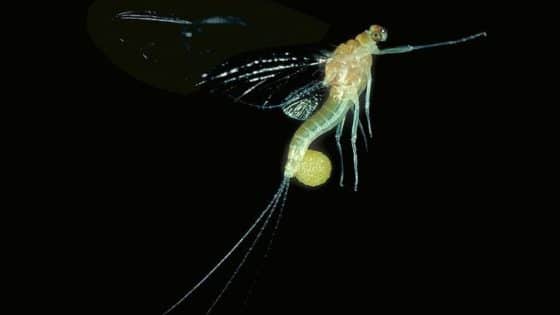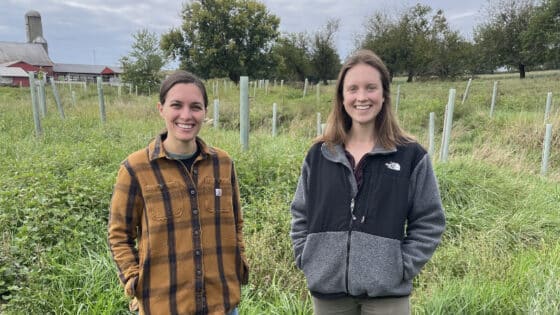Thanks to the skilled and experienced facilities management team, Stroud Water Research Center’s high-tech, environmentally sustainable campus runs like a well-oiled machine. Dave Funk, Will Milliken, Solomon Romero, Javier Tinoco, and Tonya Prigg, all working behind the scenes, maintain a space for our scientists and educators to do what they do best. Without their exceptional care of the Center’s buildings and grounds, our work would not be possible.
Meet the Team
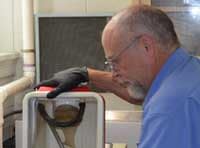
Dave Funk, director of facilities since 1996, has worked at the Stroud Center since 1976 as an entomologist and key member of our research team. His long tenure at the Center and his keen interest in mechanical operations have given him an exceptional understanding of how the Center’s physical plant operates. And his expertise is all the more valuable with the addition of our Moorhead Environmental Complex. LEED®-certified to the Platinum level, this green building for environmental education and public outreach utilizes rain water capture, a wetland waste treatment system, and other complex systems like an upgraded geothermal heating and cooling system. Funk oversees all of these systems.
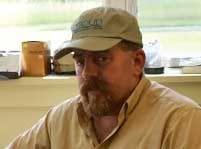
Likewise, Will Milliken, the Center’s maintenance mechanic since 2000, has developed a comprehensive understanding of the Center’s complex mechanical, plumbing, and electrical systems. He’s mastered systems that have been developed over the course of the Stroud Center campus’s 45-year history. He keeps our indoor stream flowing, manages our composting toilet system, and assists researchers in building new infrastructure for freshwater science experiments. With the recent move of the facilities workshop and office space into the basement of the Moorhead Environmental Complex, he now has ample space to manage concurrent projects and activities, whether that be repairing doors or configuring experimental contraptions.
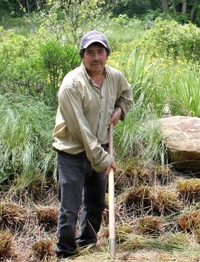
Beyond our facilities, the Center owns and maintains about 50 acres of grounds. And thanks to Salomon Romero and Javier Tinoco, woodlot technicians since 1992 and 1994, the forested areas, meadows, gardens, and lawns are in fine shape. Romero and Tinoco have been instrumental in maintaining the outdoor experimental areas and restoration plantings.
Since 2000, the Center has had funding from the National Science Foundation’s Long-Term Research in Experimental Biology (LTREB) program. The LTREB project at the Center is focused on understanding differences in stream ecology between open meadow and forested stream reaches and the study of changes to meadow reaches as they recover to forest after riparian restoration. To achieve this, the Center needs to maintain a meadow reach and also manage the exotic invasive species that often invade our streambanks and forests.
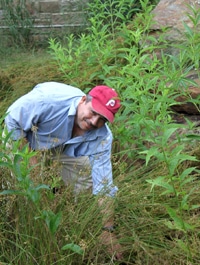
If you haven’t seen our campus lately, you should come for visit. Tinoco and Romero have been busy around campus, and the grounds are now filled with rain gardens, a green roof, and native tree and shrub plantings that help manage stormwater runoff from our buildings and parking areas. Although the landscape was designed to minimize maintenance, gardens are never maintenance free.
But Tinoco and Romero are much more than woodlot technicians. Especially during the cold season, both assist with facilities maintenance and repair and have recently been demolition experts, painters, and carpet installers, as the Center refurbishes space in its older building.
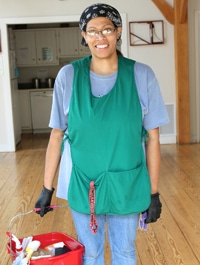
Last, but not least, is Tonya Prigg. Since 1997, she has meticulously provided housekeeping services. Prigg does it all: windows, floors, dusting, recycling and waste removal, event cleanups, and laundry services. She has also had to increase her workload, as the Moorhead Environmental Complex has added about 16,500 square feet to our now nearly 43,000 square feet of indoor space. That includes a 1720s cabin (which serves as overnight guest accommodation for visiting colleagues), an 1800s restored barn (now our Ruth Patrick Library), a Quaker-style meetinghouse, and numerous labs, offices, and classrooms. As we have transitioned to more sustainable choices, Prigg continues to work with housekeeping suppliers to ensure that our choices in cleaning chemicals are environmentally safe, our paper products are derived from recycled materials, and our soaps are biodegradable and safe for our water and the organisms living in the water.
The Stroud Center thanks this team for their hard work and dedication.

